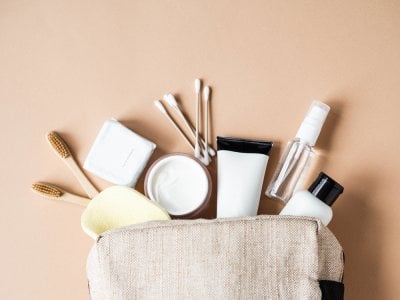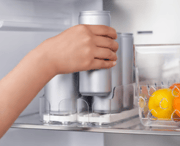Survey finds millions of Aussies struggling to afford these essential products: ‘It’s heartbreaking’
By
Seia Ibanez
- Replies 20
Hygiene is a crucial part of our daily lives, helping us stay healthy, confident, and comfortable.
However, due to the rising cost of living, many Australians find it increasingly difficult to afford basic hygiene products.
A recent survey has highlighted this issue, revealing that millions are going without these essential items.
According to charity Good360 Australia, more than four million people, or more than one in seven, recently skipped buying essential personal hygiene or household cleaning products.
They also noted that the increased demand for hygiene and cleaning products has surpassed the available supply.

‘It's heartbreaking to see families having to choose between heating, eating or keeping clean,’ Managing Director Alison Covington said.
‘Hygiene poverty has profound implications, not just for physical health, but also for mental and emotional wellbeing.’
Hygiene poverty refers to the inability to afford one or more essential hygiene products.
Covington stated it is often a precursor to food and fuel poverty, as people tend to give up items like shampoo before sacrificing food.
‘Hygiene poverty is a hidden issue because it can be embarrassing to talk about,’ she noted.
‘It can mean avoiding a job interview due to concerns over body odour, missing work or school due to a lack of period products, or students being bullied because of hygiene issues.’
The survey of a thousand people showed that one in ten respondents experienced mental health issues due to being unable to afford personal hygiene or cleaning products.
Additionally, 10 per cent reported negative effects on their physical health, and eight per cent avoided social events or missed work due to hygiene poverty.
Women were more likely to be affected, with 16 per cent having to skip buying hygiene products due to financial constraints, compared to 13 per cent of men.
‘These are basic items that most of us take for granted but for many, they are becoming unaffordable luxuries,’ Covington said.
‘In a country as wealthy as Australia, this shouldn't be happening - everyone deserves access to basic hygiene and cleaning essentials.’
The research also revealed that one-fifth of respondents were concerned about their future ability to afford hygiene and cleaning products, with 18 per cent worried about ensuring their family's access to these essentials to be healthy.
Good360 Australia distributes unsold consumer goods to charities and disadvantaged schools to support those in need.

How do you manage the rising costs of everyday essentials? Share your tips and experiences in the comments below!
However, due to the rising cost of living, many Australians find it increasingly difficult to afford basic hygiene products.
A recent survey has highlighted this issue, revealing that millions are going without these essential items.
According to charity Good360 Australia, more than four million people, or more than one in seven, recently skipped buying essential personal hygiene or household cleaning products.
They also noted that the increased demand for hygiene and cleaning products has surpassed the available supply.

Good360 Australia’s survey found that millions of Aussies struggle to afford hygiene products. Credit: Shutterstock
‘It's heartbreaking to see families having to choose between heating, eating or keeping clean,’ Managing Director Alison Covington said.
‘Hygiene poverty has profound implications, not just for physical health, but also for mental and emotional wellbeing.’
Hygiene poverty refers to the inability to afford one or more essential hygiene products.
Covington stated it is often a precursor to food and fuel poverty, as people tend to give up items like shampoo before sacrificing food.
‘Hygiene poverty is a hidden issue because it can be embarrassing to talk about,’ she noted.
‘It can mean avoiding a job interview due to concerns over body odour, missing work or school due to a lack of period products, or students being bullied because of hygiene issues.’
The survey of a thousand people showed that one in ten respondents experienced mental health issues due to being unable to afford personal hygiene or cleaning products.
Additionally, 10 per cent reported negative effects on their physical health, and eight per cent avoided social events or missed work due to hygiene poverty.
Women were more likely to be affected, with 16 per cent having to skip buying hygiene products due to financial constraints, compared to 13 per cent of men.
‘These are basic items that most of us take for granted but for many, they are becoming unaffordable luxuries,’ Covington said.
‘In a country as wealthy as Australia, this shouldn't be happening - everyone deserves access to basic hygiene and cleaning essentials.’
The research also revealed that one-fifth of respondents were concerned about their future ability to afford hygiene and cleaning products, with 18 per cent worried about ensuring their family's access to these essentials to be healthy.
Good360 Australia distributes unsold consumer goods to charities and disadvantaged schools to support those in need.
Key Takeaways
- Over four million Australians are unable to afford essential hygiene products, according to Good360 Australia.
- The report stated that hygiene poverty affects both physical and mental health, leading to missed work, school, and social events.
- The report also found that women are more likely to skip buying hygiene products due to cost compared to men.
- Many Australians worry about affording these basics in the future, with 18 per cent of respondents worried about ensuring their family's access to these essentials to be healthy.







